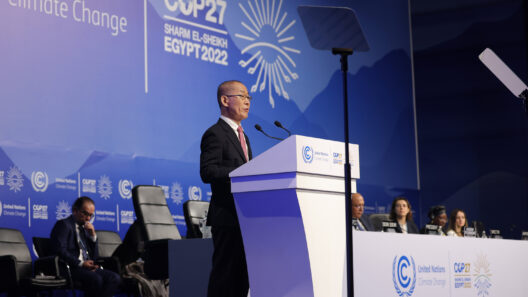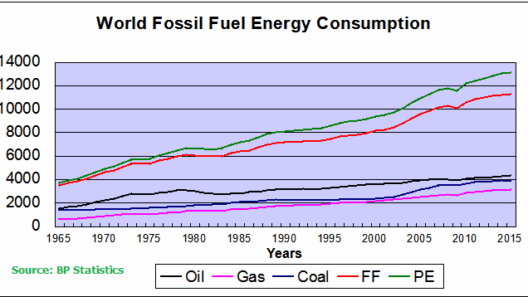Global warming, an omnipresent specter looming over our planet, extends its tendrils far beyond mere meteorological predictions and seasonal fluctuations. Its implications infiltrate diverse realms such as economics, health, ecosystems, and social structures, prompting a critical examination of how climate change alters the very fabric of our lives. As temperatures rise, the consequences manifest in both tangible and subtle forms, reshaping our world in profound and sometimes insidious ways.
One of the most immediate effects of global warming materializes in the form of extreme weather events. The frequency and intensity of hurricanes, droughts, floods, and wildfires have surged exponentially, disrupting communities and economies. These aberrations in climate patterns are not merely isolated incidents; they meticulously carve a path of destruction, leading to humanitarian crises that demand urgent responses. Furthermore, the economic ramifications ripple outward as natural disasters escalate repair costs, insurance premiums soar, and agricultural yields fluctuate unsettlingly. The escalating instability in food supply chains forces nations to grapple with food security and price volatility, ultimately leading to increased socio-political tensions.
Such climatic upheaval invariably inflicts severe blows to biodiversity. As prescribed temperature thresholds are breached, ecosystems face an existential threat. Coral reefs, the vibrant metropolises of marine life, are succumbing to coral bleaching—an unremarkable yet devastating process that upheaves marine biodiversity. Terrestrial species, too, are helplessly traversing altered habitats, vying for survival as their environments morph unpredictably. Fragmentation of habitats exacerbates the dilemma—the creation of ecological islands restricts species migration pivotal for their survival. As many species edge towards extinction, ecosystems lose resilience; the delicate equilibria that sustain life on Earth are severely endangered.
The intricate link between global warming and public health is equally alarming. Rising temperatures and changing precipitation patterns foster the proliferation of vector-borne diseases, such as malaria and dengue fever, as mosquitoes find newfound territory in warmer climates. Alongside this, air quality deteriorates due to the proliferation of heat-trapping pollutants. As asthma and respiratory diseases proliferate, healthcare systems strain under the pressure of burgeoning patient populations. Vulnerable groups, including the elderly and those with pre-existing conditions, experience the brunt of these health crises, facing an alarming rise in morbidity and mortality rates.
The sociopolitical landscape is also on the precipice of transformation under the burden of global warming. Climate-induced migration is an increasingly prevalent phenomenon; communities displaced by rising sea levels, catastrophic storms, and prolonged drought are forced to seek refuge elsewhere. This migration engenders conflict over dwindling resources, stoking tensions among indigenous populations and migrants alike. As governments struggle to implement effective climate adaptation strategies, public discourse around climate change becomes polarized, leading to a fractious political atmosphere that complicates necessary action. The struggle for climate justice has emerged, calling for equity in the climate discourse and advocating for marginalized communities disproportionately affected by environmental degradation.
From a cultural perspective, global warming influences not only the physical environment but also the very narratives we create. Art, literature, and media increasingly explore themes of climate change, reflecting a deeper societal reckoning with the implications of our consumption patterns and lifestyle choices. Cultural archetypes, once centered on nature as a formidable ally, now highlight the human struggle against a hostile environment, imbuing narratives with urgency and a call to action. This cultural evolution serves as both a harbinger of caution and a platform for innovation, as artists and creators rally to inspire transformative change.
Amidst these myriad challenges lies the potential for innovation and progress. The race towards sustainable energy solutions is a beacon of hope in combatting global warming. Technological advancements in solar, wind, and geothermal energy herald a seismic shift in how societies harness energy. Renewable energy sources, crucial for decarbonizing economies, pave an avenue for increased energy independence, job creation, and technological prowess. The subsequent reliance on cleaner energy not only diminishes greenhouse gas emissions but also fosters a renewed appreciation for environmental stewardship, ultimately forging a more resilient society.
The convergence of climate science, technology, and policy necessitates an interdisciplinary approach toward solutions. Engaging stakeholders across sectors—governments, businesses, civil society, and academia—brings forth collaborative pathways to mitigate climate impacts. Policy frameworks must innovate as swiftly as climate change escalates, focusing on adaptive measures such as resilience planning, ecological restoration, and enhanced public infrastructure. Education also plays a pivotal role; informed citizenry spurs advocacy for sustainable practices, nudging society towards a collective climate consciousness.
As global warming inexorably alters the dimensions of our existence, awareness of its multifaceted effects is crucial to inspire action. People must cultivate an acute understanding of environmental interdependencies, empowering themselves to contribute positively to ecological well-being. Active participation in climate initiatives, community engagement, and lifestyle changes create ripples that can collectively galvanize societal transformation. Just as the intertwining strands of climate change weave through every aspect of our lives, so too must our response be holistic, interconnected, and unwavering.
In conclusion, the ramifications of global warming extend indefinitely beyond mere temperature changes, embedding themselves into our economic frameworks, health systems, social dynamics, and cultural narratives. The interplay between our actions and the environment reminds us of our shared responsibility to safeguard the planet. Future generations depend upon the choices we make today. Only through an astute understanding of climate change’s comprehensive impacts can we forge a path toward a sustainable and equitable future, ensuring that we remain stewards of our planet rather than mere inhabitants.





